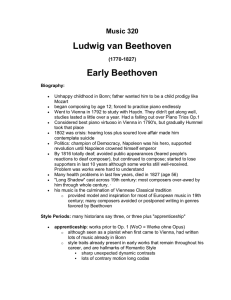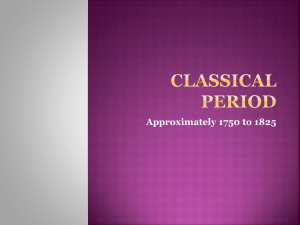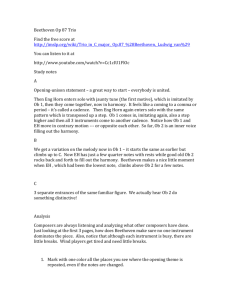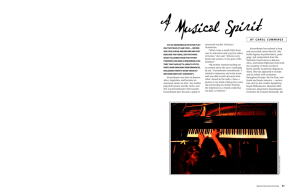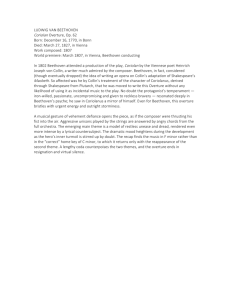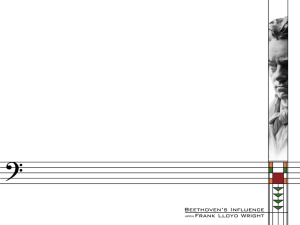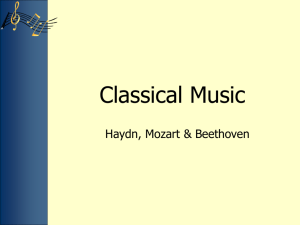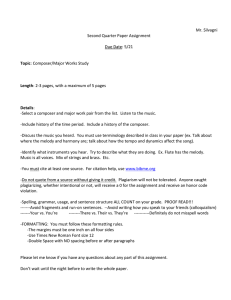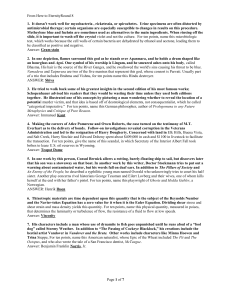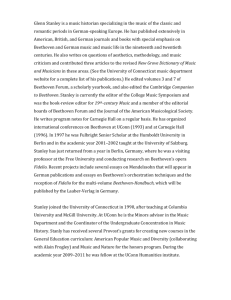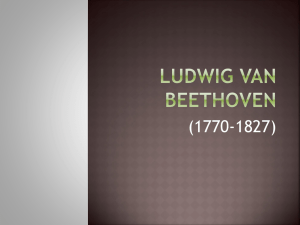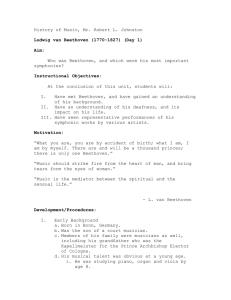raised the bar - La Salle University
advertisement
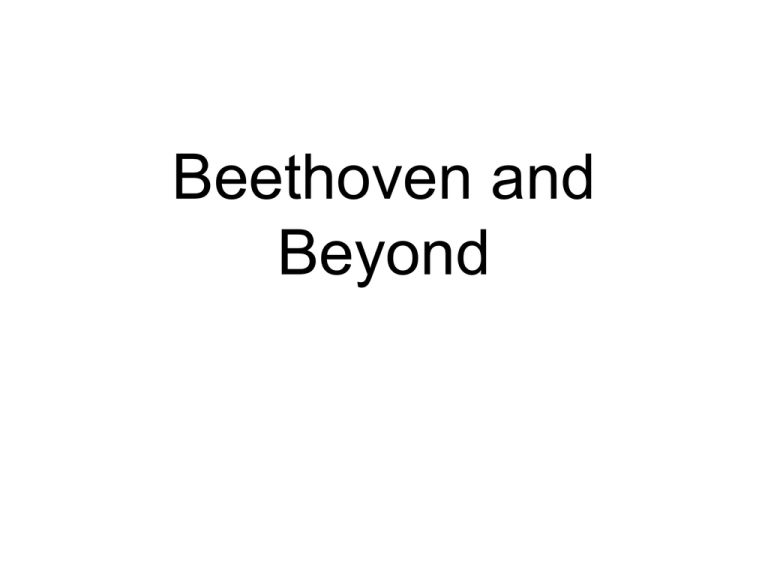
Beethoven and Beyond Beethoven Symphony No. 9 • • • Ode to Joy Begun in 1794, finally appeared in the last movement of Symphony No. 9 in 1825. This melody is sung by voices - unheard of at the time for a symphony! Question: Where was Beethoven going with the form of the symphony? This was his last. What did he envision? Beethoven raised the bar in symphonic construction, piano solo work (sonatas) string quartets, and other standard genres in his time. This challenged any composer who followed him to try to avoid being compared to Beethoven! After Beethoven • • • Composers avoided the types of works Beethoven wrote, as he redefined them. Young Romantic composers were trying to create their own genres so that they could not be traced to Beethoven! Few composers wrote symphonies, fewer still wrote piano sonatas, and virtually no one wrote string quartets. Romantic Period: 1820-1900 • Leaving the Common Practice Period, and the concept of “key”. • The idea of key was weakened by adding more and more “wrong” notes to their music, and having patience for the ears of the audience to accept them. Chromatic notes (colored notes), thickens out the harmony. • Romantics are extreme! • Extremely large scale works (4opera cycle performed over 4 consecutive nights) • Extremely small scale works (the Miniature: short works for piano alone or voice and piano) Miniatures • Piano solo works - character pieces. Introduces one “character”, then ends. Very little development (to avoid being compared to how Beethoven would develop an idea!). Miniatures • Works for voice and piano - Lied. Short works, based on poetry others had written. Schubert wrote over 600 songs. Extreme large scale works • • • • Hector Berlioz - Symphonie Fantastique. Program work in 5 movements tells a story of how the composer “poisoned himself with opium” and had visions about the women he had a crush on. Eventually, he murders her in the story, and must forever remain in Hell with witches and ghouls. All of these ideas are captured in the music. • • • • • • • • • Extreme large scale works Wagner Ring Cycle. Richard Wagner (German composer) who took it upon himself to do everything in the construction of dramatic vocal works. Does not like Italian Opera (wrote an essay 376 pages long discussing why German music drama is better than Italian opera!). Wrote all the music, created the story, characters and plot, wrote his own librettos, designed his own costumes, staging, scenery, etc. Went so far as to design a theatre for the production of his works!
